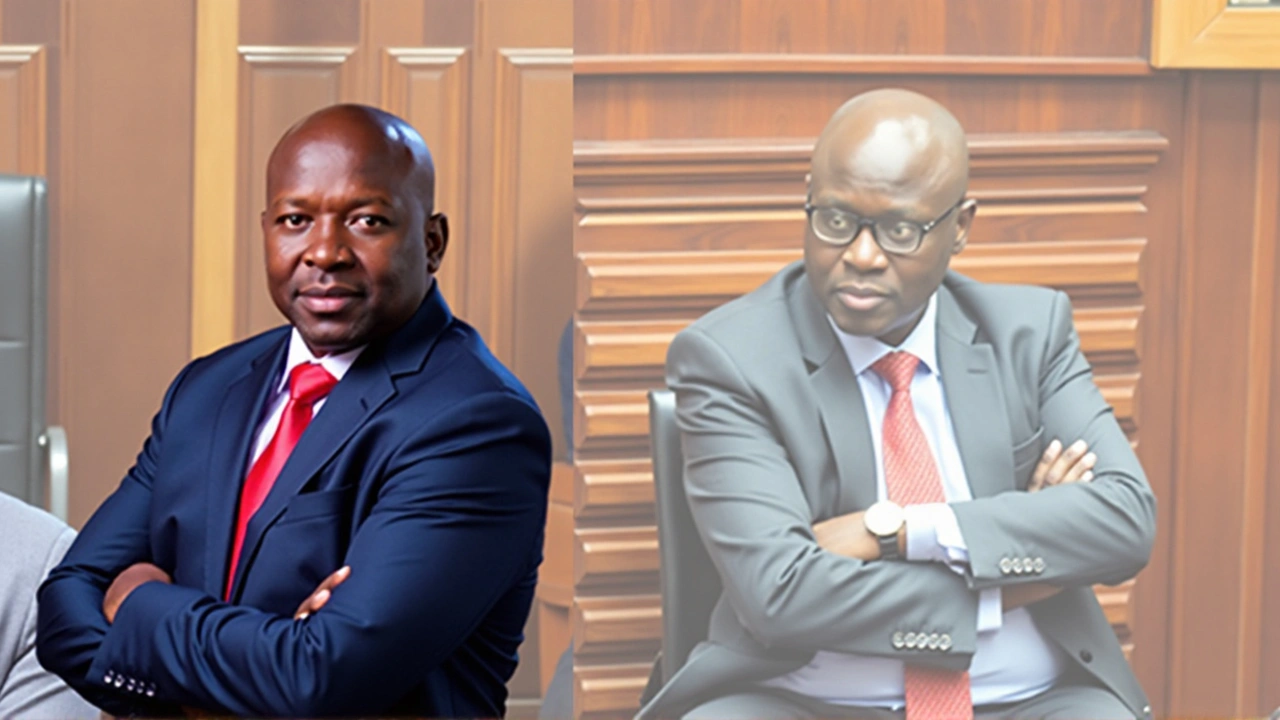Professor Kithure Kindiki Emerges as New Deputy President After Rigathi Gachagua's Removal

Professor Kithure Kindiki's Ascendancy to Deputy President
In a transformative move within the political sphere, Professor Kithure Kindiki has been put forward as the new Deputy President. This nomination comes on the heels of the National Assembly's compelling vote to impeach the former Deputy President Rigathi Gachagua. A staggering 282 Members of Parliament (MPs) cast their votes in favor of the impeachment motion, leaving 44 in opposition. Speaker Wetangula, presiding over the session, received Kindiki's nomination, marking the beginning of a new chapter in the nation's leadership. This decision reverberates beyond the echelons of power, as it anticipates a period of recalibration that extends to the broader dynamics of the political landscape.
The End of Rigathi Gachagua's Tenure
The political career of Rigathi Gachagua, previously holding the second-highest office in the land, was curtailed through a process that reflected both strategy and dissent. Proponents of Gachagua's removal cited a variety of reasons, ranging from policy disagreements to broader allegations affecting his political legitimacy. The overwhelming support for his impeachment could point to a pressing demand among lawmakers for revitalized leadership—one that aligns more closely with current political priorities and ambitions. The political environment has proven to be one where popular opinion and parliamentary influence intersect, creating a dynamic that ultimately led to Gachagua's departure.
Professor Kindiki: An Influential Figure
Professor Kithure Kindiki's journey in the political sphere has been nothing short of remarkable. As the current Interior Cabinet Secretary, he has accumulated considerable experience and has been recognized for his strategic capabilities and leadership acumen. Kindiki’s nomination as Deputy President wasn't unexpected for many political pundits, especially those familiar with the undercurrents within the Mt Kenya region, where he has enjoyed substantial support. Prominent leaders from this area have long viewed him as a key advocate capable of articulating their aspirations at the national level, thrusting him into a favorable position as the potential Deputy President.
Opinion Polls and Regional Politics
Public opinion has often shaped the trajectories of leadership contests, and in this instance, it has been no different. Reputable firms such as Infotrak and Tifa have conducted opinion polls that place Professor Kindiki as a frontrunner in the race to succeed Gachagua. These surveys reveal a prevalent view among the public and political analysts that Kindiki fulfills the criteria necessary to guide the deputy presidency effectively. His emerging leadership is seen as a means to pacify potential discontent among the Mt Kenya region, an area previously integral to Gachagua's support base. This strategic positioning may potentially extend a lifeline to MPs who rallied against Gachagua by restoring regional trust and harmony.
Impact on the Political Landscape
Beyond its immediate implications, Kindiki's nomination represents a pivotal shift with the potential to reshape the political landscape significantly. As political alignments and alliances adapt to this new reality, several layers of outcomes remain possible. The nomination may forge a path toward enhanced cooperation between diverse political constituencies, mitigating previously existing tensions. Additionally, Kindiki's role could turn into a savior for MPs who actively participated in Gachagua's impeachment by securing their positions and prospects through renewed public credibility.
Prospects and Challenges Ahead
As Kindiki steps into the limelight, the dual aspects of promise and challenge accompany his impending tenure. Foremost among the priorities will be undertaking a comprehensive assessment of ongoing initiatives previously overseen by the deputy presidency and calibrating them to meet current goals. In parallel, managing expectations, both from the political establishment and constituents, will be imperative. Navigating a landscape that remains dynamic and occasionally turbulent will test his political deftness and ability to forge consensus among varied stakeholders. However, if the unity he garners from Mt Kenya supporters translates into national solidarity, the potential for a fortified political climate is substantial.
Professor Kithure Kindiki's nomination as Deputy President marks a moment of possibility—one echoed with aspirations of stabilization and unity. As the nation absorbs this pivotal decision, Professor Kindiki's leadership journey is poised to leave a lasting imprint, buoyed by a strength and vision that continues to mature and evolve in this dynamic political era.